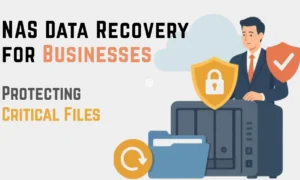Proxy servers help guarantee anonymity, security, speed, and performance. But you’ll waste money if you choose the best service. This is because numerous proxy services exist, but most don’t offer the quality of service they advertise.
Hence, it’s up to you to be clever with making a choice. To do that, you need to know what to look out for. That’s what this article will be about – tips on choosing the best proxy service provider.
What are Proxy Servers, and How Do They Work?
A proxy server is an infrastructure that works as an intermediary between a user’s computer network and the rest of the internet. In its capacity as an intermediary, a proxy replaces the user’s IP address with another one from its pool. The new address can often be that of a data center or a residence.
When you have a proxy server installed, every connection request from your computer first goes to the server. The server then changes the IP address, which is then used to forward your request to the destination website. A response from the website also goes through the proxy server before reaching your computer.
By doing this, even if anyone wants to trace the connection request you sent, it will only lead to the proxy. This is an added layer of security for your computer network. Many organizations use them as firewalls, securing employees from malware.
On their own, proxies may not be enough to secure your network from threats. But when coupled with a web gateway, or other products, they become a significant security infrastructure.
Proxy servers can either be software or hardware. The hardware devices are physically present in your space, intercepting connections and transferring data between you and the web. The software proxies, on the other hand, are hosted on the cloud. Downloading this software gets them working on your computer instantly.
Types of Proxies
On a broader scope, there are two main types of proxies. These are forward proxies and reverse proxies. Forward proxies are those used by the general populace, technically known as “clients.” These proxies forward the internet request of users to destination servers. They are the most common type of proxies, and they offer efficiency and bandwidth control.
Reverse proxies, on the other hand, act on behalf of servers. Just like forward proxies hide the identity of users (clients), reverse proxies hide the identification information of servers.
Since proxies are such a broad topic to explore, they can be categorized based on several factors. Some of these are; IP addresses, exclusivity, degree of anonymity, etc. For this article, we’d be classifying proxies based on IP addresses.
1. Residential Proxies
These proxies provide addresses allocated by internet service providers. Furthermore, they are linked to real homes in different countries and cities worldwide. The actual locations make it impossible to distinguish between proxies and real users. Ultimately, websites protected by anti-bot software can’t prevent access from such addresses.
Because of the efficiency of these addresses, they are mainly used as rotating proxies, which you can use for web scraping. However, the efficiency of residential proxies makes them more expensive.
Pros
- They give users real addresses.
- Anti-bot systems do not easily detect them.
- They help keep users anonymous longer than other types of proxies.
Cons
- They are very costly to subscribe to and maintain.
2. Datacenter Proxies
Datacenter proxies are maintained by web hosting services and can serve customers worldwide. Internet service providers don’t supply these. As you’d expect from every proxy, they make connection requests proceed faster and are cheaper to acquire and maintain. Unfortunately, though, anti-scraping systems can easily track and block them.
Pros
- They are cheaper to maintain.
- They are fast and efficient.
Cons
- They give addresses that do not belong to an actual home.
- They can be blacklisted quickly.
3. Mobile Proxies
Mobile proxies are gateways that replace a user’s IP address with a mobile device. Hence, when the network request is traced back, it looks like you’re browsing from a mobile device. These addresses don’t necessarily have to be assigned to a mobile device. They can be assigned to desktop devices, but any third-party tracing will think it’s from a mobile device.
Pros
- They are efficient.
- They make browsing faster.
Cons
- One address can be assigned to several devices at the same time.
5 Tips on how to choose a proxy provider
When trying to choose a proxy provider, here are five tips you must have in mind:
- Focus on your needs: The exact topic you get should depend on your browsing needs. You shouldn’t waste money getting a proxy that doesn’t meet your needs
- Confirm their IP pool: Different proxy servers have varying IP addresses in their pools. The more addresses available, the better.
- Check their price: Residential proxies are arguably the best and cost the most. Other proxy types can also work efficiently. Hence, you must duly consider all prices to find the best fit for your budget.
- How efficient is their customer service: Whether you’re getting a software or hardware proxy, ensure the provider has a support team ready to lead you through any technical problem.
- Check out their management tools: Most times, to get the best from a proxy server, third-party management tools are essential. Hence, check for tools that can make your work easier.
Conclusion
Choosing a proxy server requires due diligence. Just like you must research before investing in any tool, you must do the same with your proxy server.
































































